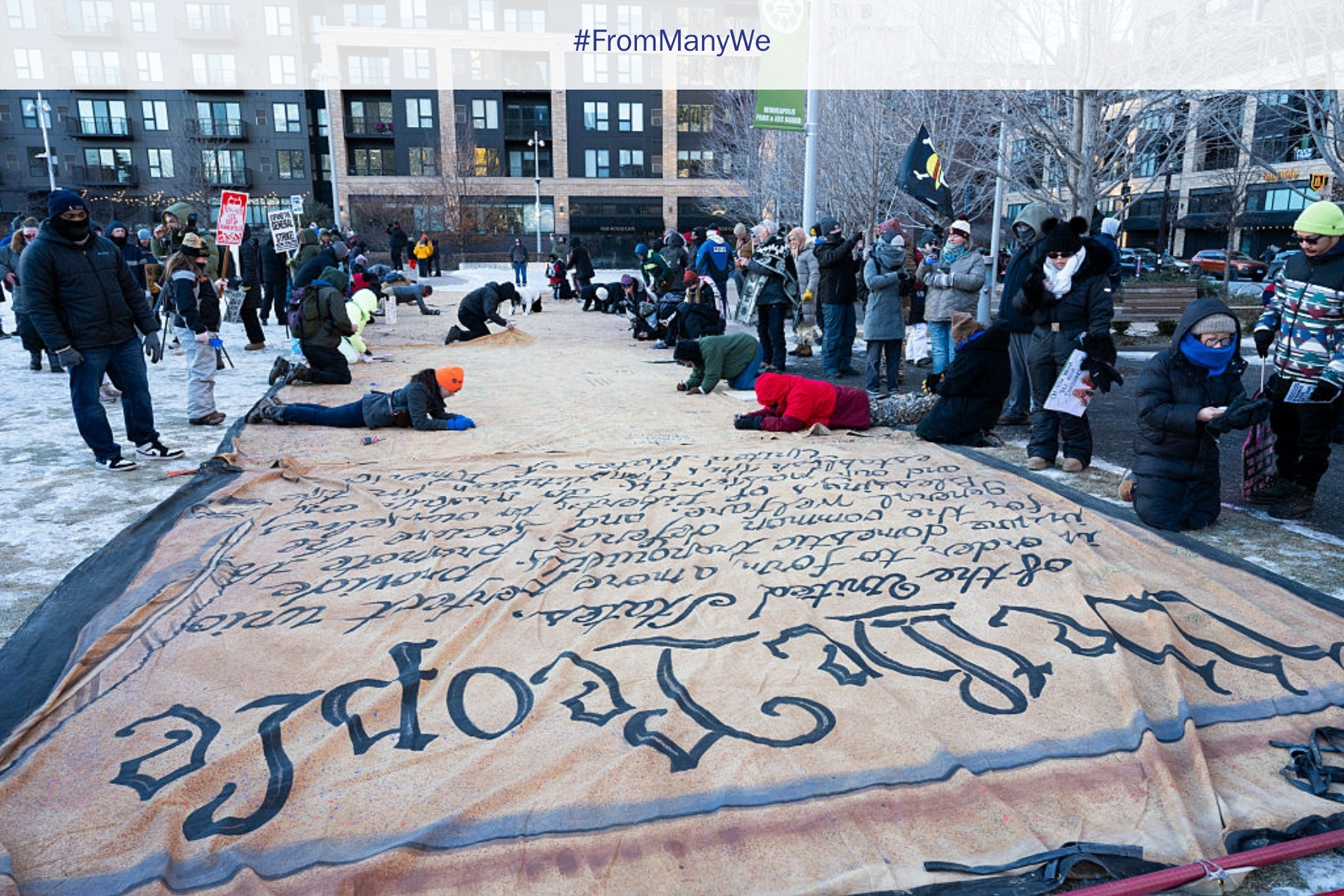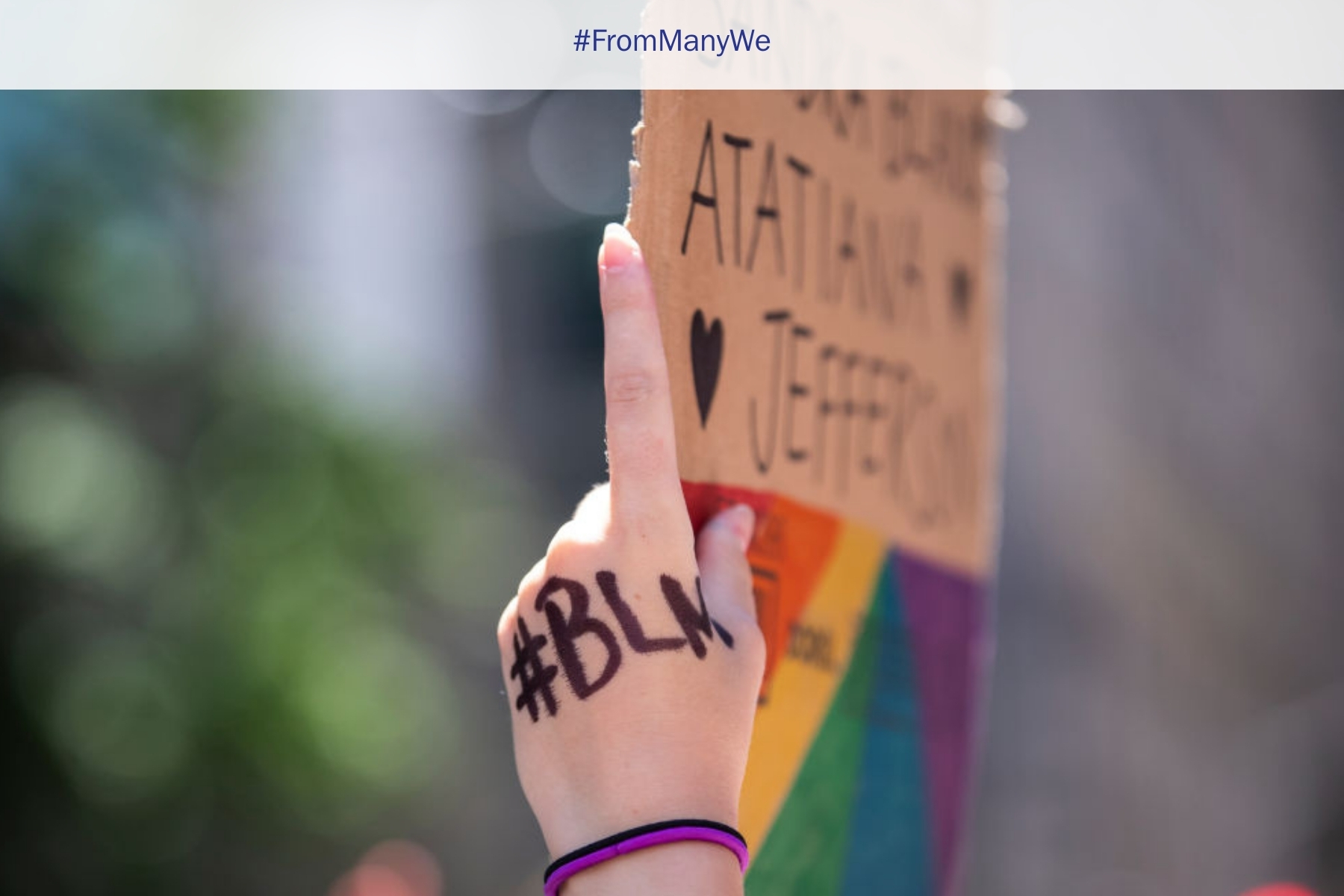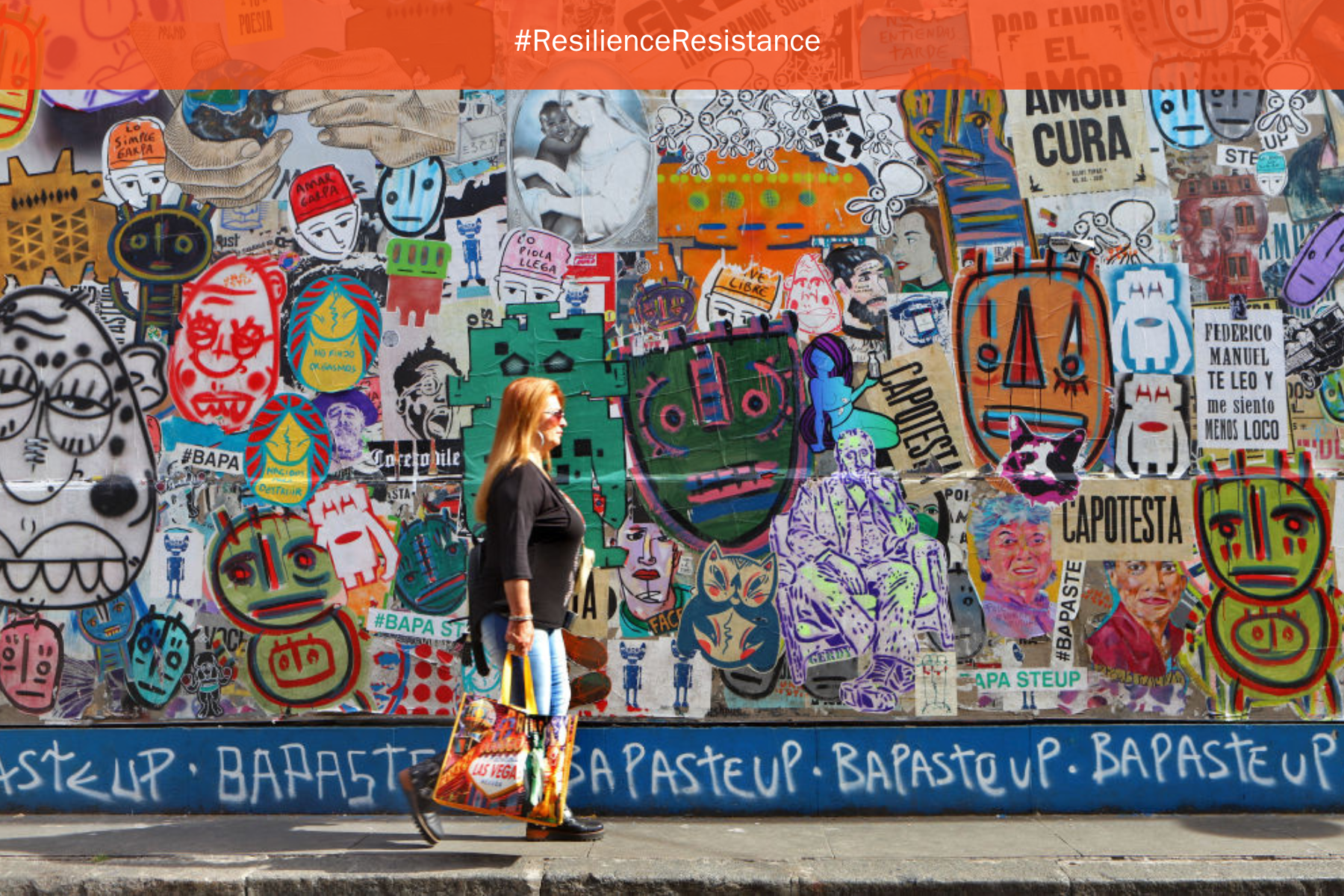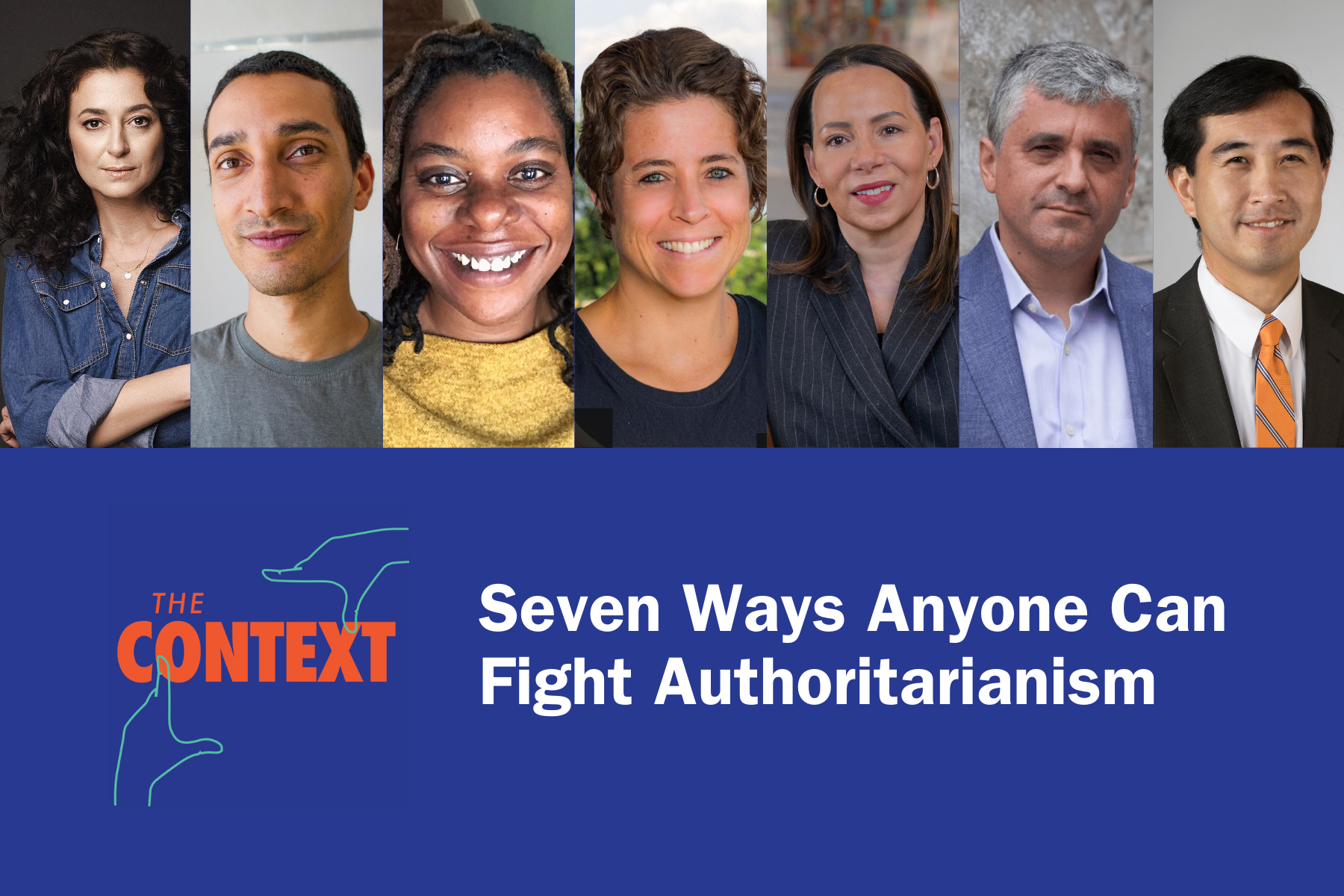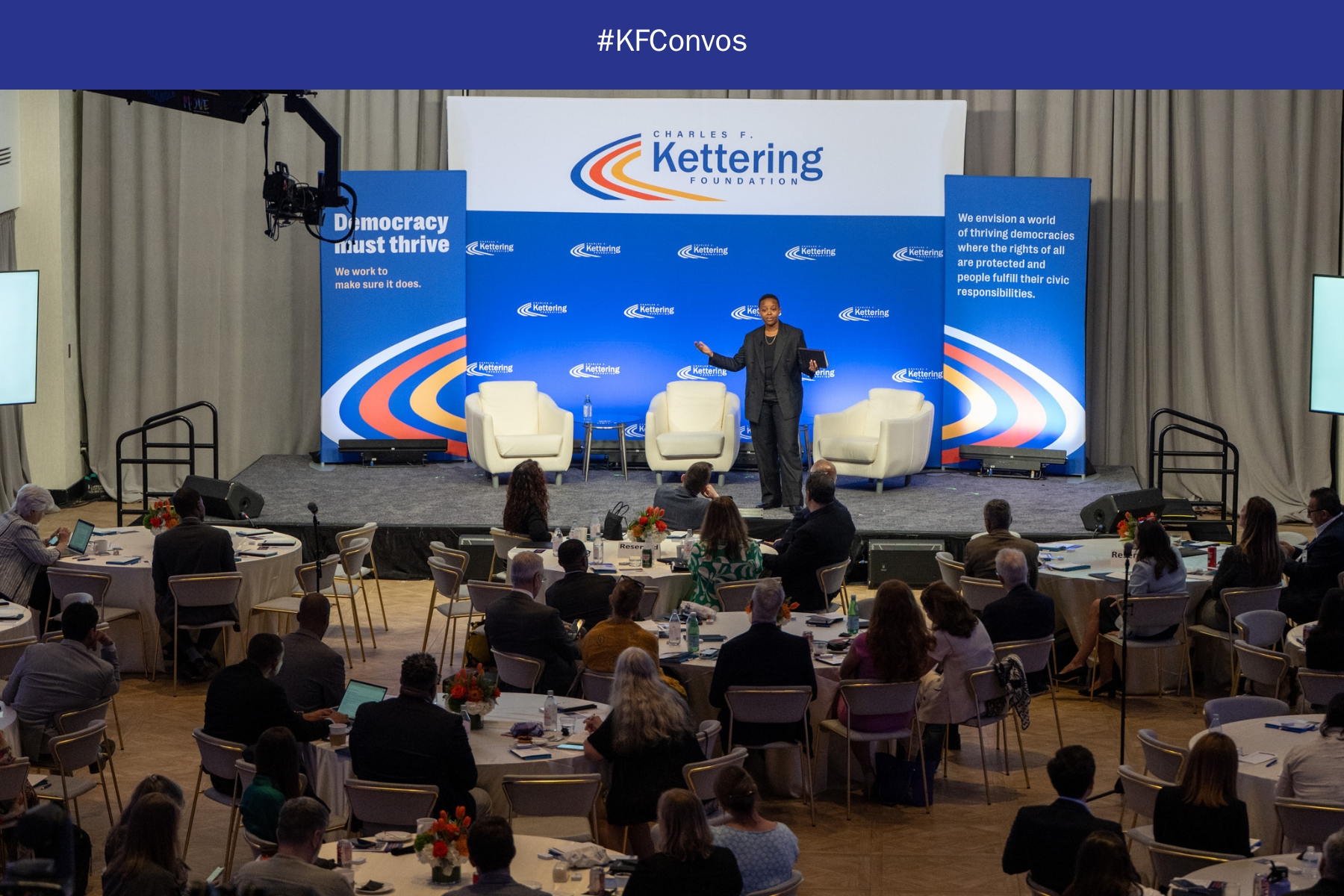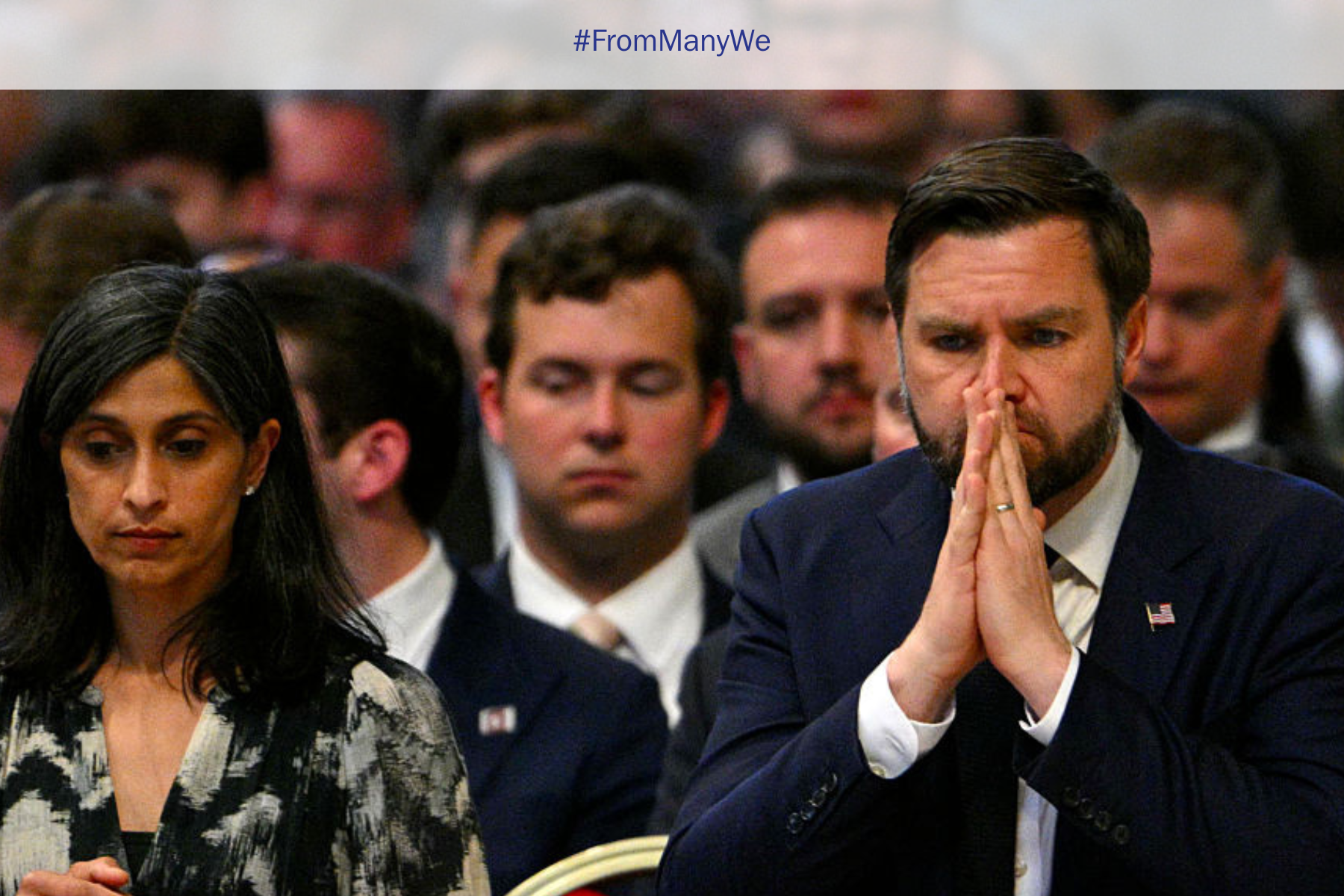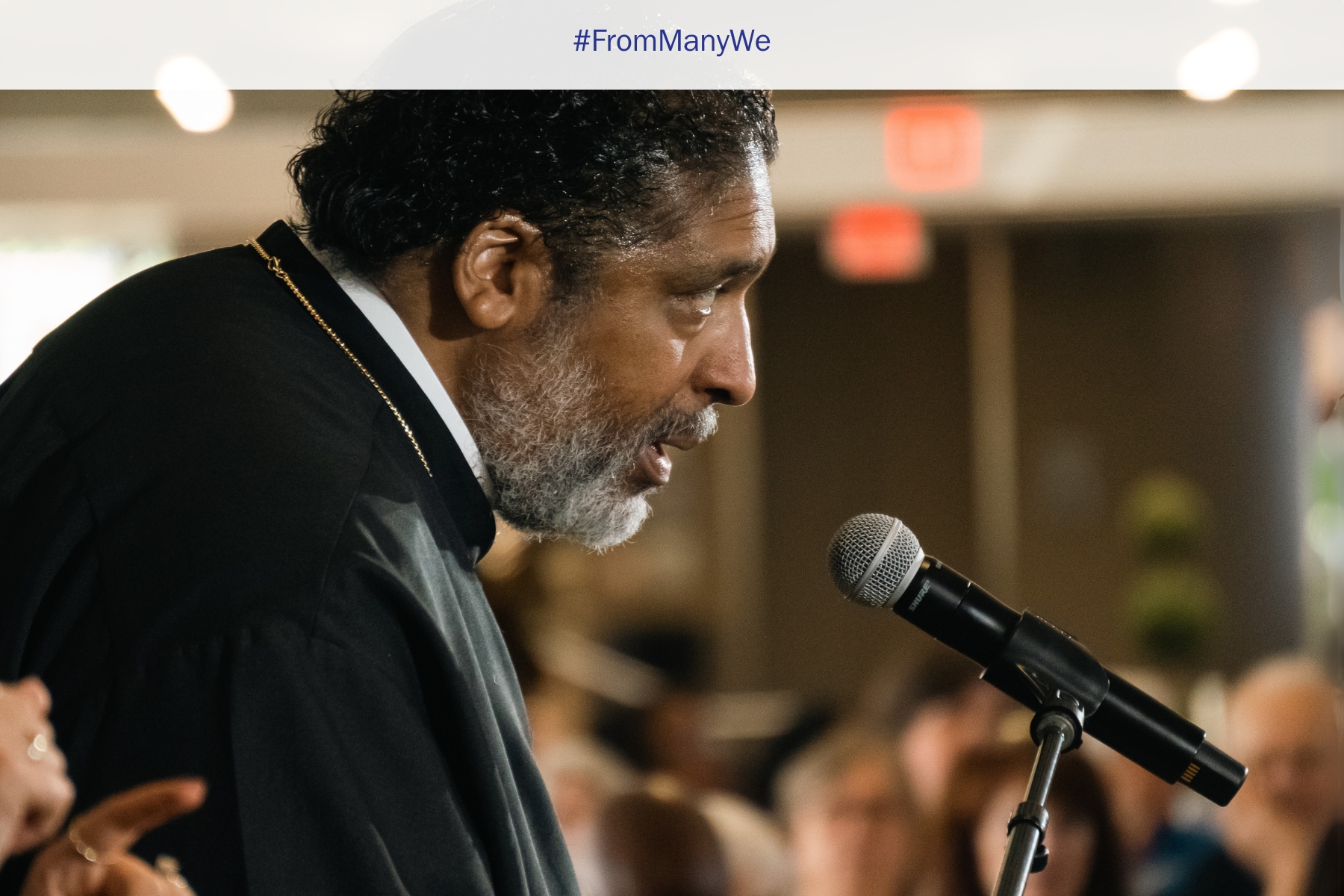Kettering Foundation Honors Sherrilyn Ifill
On September 25, the Kettering Foundation hosted a reception during this year's Congressional Black Caucus Foundation Annual Legislative Conference in Washington, DC. The reception, "Celebrating Black Women Strengthening Democracy," followed a panel session earlier in the day that focused on the transformative power of strategic coalitions as a way to bring together diverse groups with a shared vision to reimagine and strengthen democracy in the US.
Sharon L. Davies, Kettering president and CEO, welcomed attendees, explaining that the foundation chose "to focus on leadership in this country" because "we have arrived at a very different, very dangerous moment in our democracy." Leadership is crucial during this time of rising authoritarianism.
Davies went on to share that "there are three things that each one of us as citizens of the United States, as people who love our country . . . that we must take very seriously right now." They are clarity, courage, and coalition. First, clarity: "I am urging everyone that I can to take seriously the gravity of the moment that we are living in right now," said Davies. Second, courage: This isn't the first time in American history where there are violence and threats to our democracy, institutions, and rights. Previous generations decided there was something more important than fear, said Davies, and now, "the baton has been passed to us." Third, coalition: Davies reminded the attendees that "We are only as strong as we are coordinated and in coalition with each other because if we fall prey to the divide-and-conquer tactics of authoritarians, we are weakened. And that means that we won't be able to achieve what we would be able to achieve together."
Before introducing the evening's honoree, Davies placed the award in context. When the award was first given last year, we didn't know how common it would become for the credentials of Black women in leadership to be denigrated, for Black women to lose more jobs than any other demographic, and for their unemployment rates to increase faster than any other group. We also didn't know that after the "horrific killing" of Charlie Kirk—an individual who "denigrated the credentials of Black women [and] said that the Civil Rights Act of 1964 was a mistake"—would be considered for the Presidential Medal of Freedom. "We celebrate Sherrilyn Ifill against that backdrop," said Davies.
Ifill is the founding director of the 14th Amendment Center for Law and Democracy at Howard University. She previously served as the seventh president and director-counsel of the NAACP Legal Defense and Educational Fund, Inc. During her tenure, Ifill led the organization through critical battles on voting rights, policing, and education equity, while expanding its capacity to confront 21st-century civil rights challenges. Ifill is a trailblazing civil rights advocate and legal scholar whose unwavering dedication to justice and equality has profoundly advanced democracy and the protection of civil rights for all.
Just before Davies presented the award, she said, Ifill "is a brilliant mind, but she is also admired for her integrity. She is esteemed for her fierce devotion to truth and for her principled determination that our government is accountable to us. . . . Recognizing your leadership in service and in defending democracy, we honor you this evening."
Ifill accepted the award in the names of Ruby Freeman and Shaye Moss, Georgia poll workers "who exemplify all the Cs." She went on to say that "they show us that leadership is not always someone who's running an organization or arguing in court or doing something that we tend to think of as being noteworthy. It's ordinary people stepping up and being willing to serve."
There were four key ideas in Ifill's remarks. The first was to explain the gravity of the situation to people within your circles, providing important information about what is happening, and to expand your circles to reach more people. The second was to think seriously of the legacy we are leaving for the next generation. "We are about to be the first generation in recent memory who are breaking the sacred trust [to leave] the world to our children in better condition than we received it," said Ifill. She challenged the attendees to think seriously about how to ensure all the hard-won rights over the past decades can be passed on to the next generation.
Ifill tied the third key idea to Davies's three Cs: citizenship. To Ifill, citizenship is more than voting: "It means we have a responsibility to our democracy and to ensure the health of our democracy. We have been living in an unhealthy democracy." The status of our democracy gives us the opportunity to reimagine our democracy, just as it was after the Civil War when the Thirteenth, Fourteenth, and Fifteenth Amendments were added to the Constitution. That is when "our national identity [became] associated with equality, and that shows you something so powerful and important. Whenever we are addressing the needs of those most marginalized, in this case Black people, it redounds to the greater democracy," said Ifill. But those three amendments weren't enough to ensure equality. The civil rights movement had to reimagine the country and now we are called on do to it again, when it is going to be difficult. Ifill explained, "Being a true citizen in a democracy is not always the safest game. . . . You should make sober decisions because you absolutely need to protect yourself to fight another day, but you have to take some risks."
The fourth and final idea was that we must all remember that we are children of the harvest—the harvest that came after the civil rights movement ushered in rights for all Americans. According to Ifill, that means it is time to plant in addition to fight. "We have to invest [and] incubate now in our institutions, in our work, in our ideas, our theories," she said. The civil rights movement happened because people were planting in the decades leading up to it: the growth of Black churches, the Harlem Renaissance, and the founding of Historically Black Colleges and Universities. Ifill urged the audience, "We've got to fight. But we've also got to plant."
